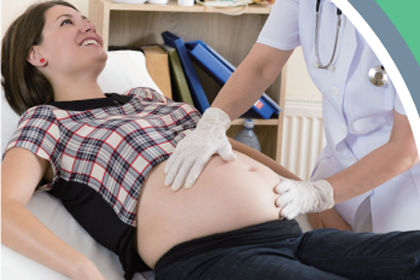Search
Related Articles

Pre and Post Surgical Abortion Education
1. What is surgical abortion?Surgical abortion (Dilation and Curetta
Instructions for Medical Abortion
Medical abortion is a non-operative approach to termination of pregn
Postoperative Instructions for Gynecologic Surg
The recommendations that follow are intended as a general guide to y
What is endometriosis?
Endometriosis is a condition in which the type of tissue that forms the lining of the uterus (the endometrium) is found outside the uterus.
How common is endometriosis?
Endometriosis occurs in about one in ten women of reproductive age. It is most often diagnosed in women in their 30s and 40s.
Where does endometriosis most often occur?
• Peritoneum
• Ovaries
• Fallopian tubes
• Outer surfaces of the uterus, bladder, ureters, intestines and rectum
• Cul-de-sac (the space behind the uterus)
How does endometriosis cause problems?
Endometriosis implants respond to changes in estrogen, a female hormone. The implants may grow and bleed like the uterine lining does during the menstrual cycle. Surrounding tissue can become irritated, inflamed, and swollen. The breakdown and bleeding of this tissue each month also can cause scar tissue, called adhesions, to form. Sometimes adhesions can cause organs to stick together. The bleeding, inflammation, and scarring can cause pain, especially before and during menstruation.
What is the link between infertility and endometriosis?
Almost 40% of women with infertility have endometriosis. Inflammation from endometriosis may damage the sperm or egg or interfere with their movement through the fallopian tubes and uterus. In severe cases of endometriosis, the fallopian tubes may be blocked by adhesions or scar tissue.
What are the symptoms of endometriosis?
The most common symptom is chronic (long-term) pelvic pain, especially just before and during the menstrual period. Pain also may occur during sex. If endometriosis is present on the bowel, pain during bowel movements can occur. If it affects the bladder, pain may be felt during urination. Heavy menstrual bleeding is another symptom of endometriosis. Many women with endometriosis have no symptoms.
How is endometriosis diagnosed?
• History and physical exam
• Laparoscopy
• Biopsy
How is endometriosis treated?
Treatment for endometriosis depends on the extent of the disease, your symptoms, and whether you want to have children. Endometriosis may be treated with medication, surgery, or both. When pain is the primary problem, medication usually is tried first.
What medications are used to treat endometriosis?
• Pain relievers, such as non-steroidal anti-inflammatory drugs
• Hormonal medications, including birth control pills, progestin-only medications, and gonadotropin-releasing hormone agonists. Hormonal medications help slow the growth of the endometrial tissue and may keep new adhesions from forming. These drugs do not remove endometriosis tissue that is already present
How can surgery treat endometriosis?
Surgery can be done to relieve pain and improve fertility. During surgery, endometriosis implants can be removed.
Does surgery cure endometriosis?
After surgery, most women have relief from pain. However, about 40-80% of women have pain again within 2 years of surgery. The more severe the disease, the more likely it is to return. Taking birth control pills or other medications after having surgery may help extend the pain-free period.
What if I still have severe pain that does not go away even after I have had treatment?
If pain is severe and does not go away after treatment, a hysterectomy may be a “last resort”option. Endometriosis is less likely to come back if your ovaries also are removed. If you keep your ovaries, endometriosis is less likely to come back if endometriosis implants are removed at the same time you have the hysterectomy.
Click the link for more information on Obstetrics & Gynecology Clinical Service








